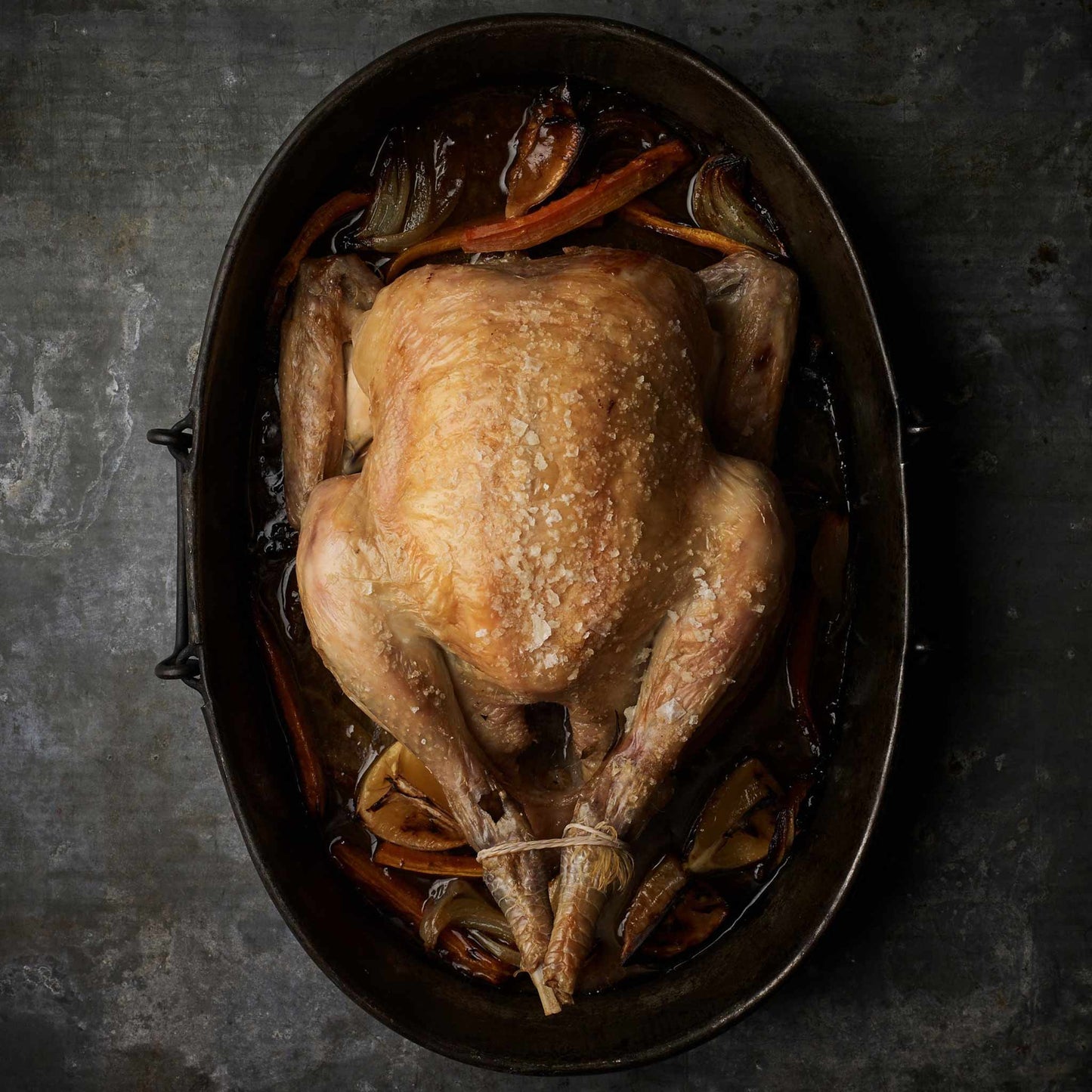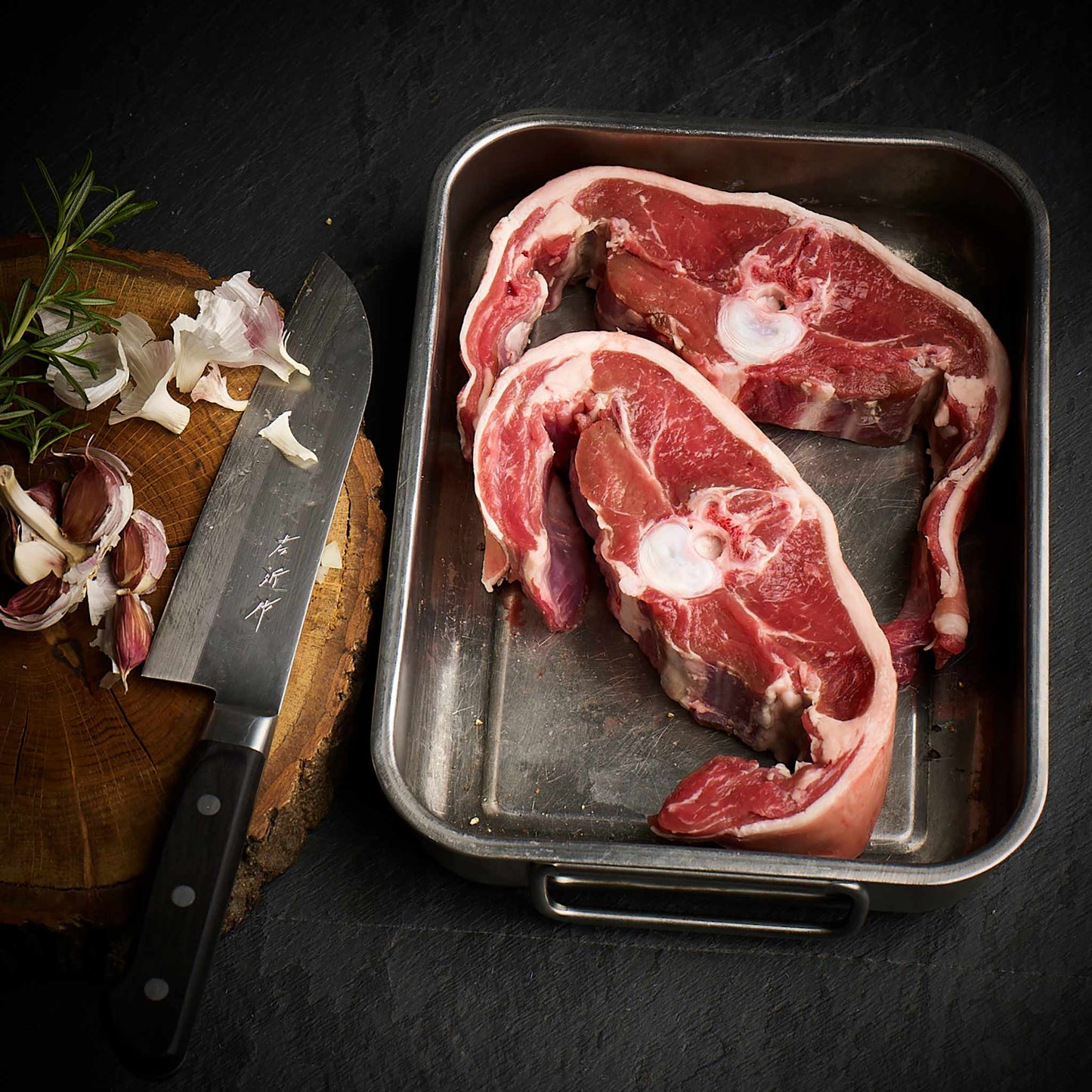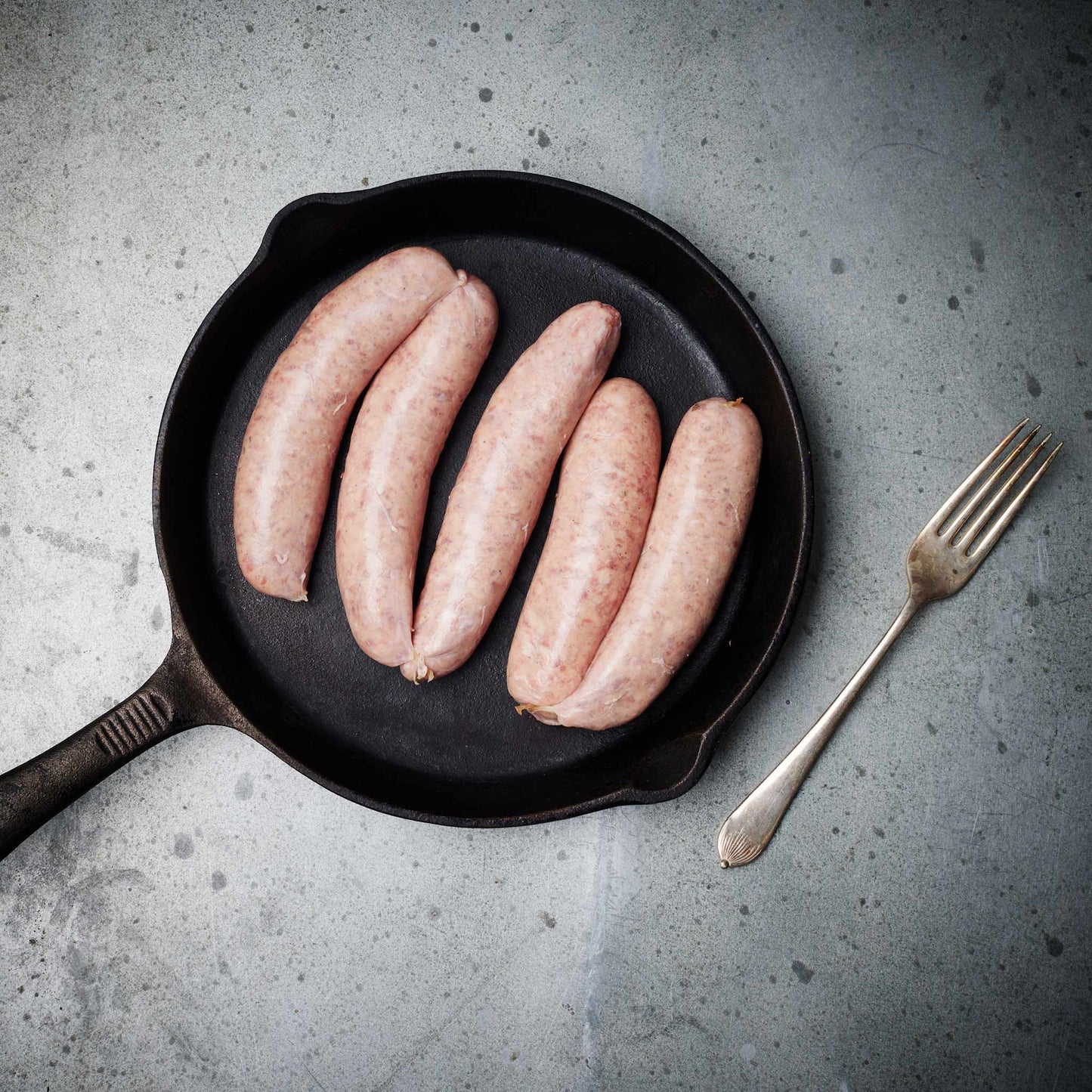We source our chicken from one farm in Leicestershire. The farm is Pasture for Life certified and rears truly free range, outdoor birds.

When customers ask if we're organic we tell them some of our farmers are certified, some are not but all are regenerative.
Of all of the marques and certifications that exist Soil Association Organic is one of the best as it is a carefully prescriptive set of rules that govern inputs, welfare, handling and slaughter of animals.
This statement was recently posted on the Soil Association website, so what does it mean?
The EU Commission have confirmed that the extension of the 5% non-organic protein feed allowance for pigs and poultry, which were put in place following shortages as a result of the invasion of Ukraine, will end on 24th February this year.
It means that in response to the grain shortages caused by the war in Ukraine the standards for organic were legally changed to allow some flexibility. You might think this defeats the object of having a standard and this certainly is a valid viewpoint, however, the consequences of not being flexible could have caused other problems.
With no flexibility and insufficient supply of organic ingredients there are several possible outcomes, first is spiralling costs of what organic ingredients are available and these costs would be passed on to the consumer, otherwise currently certified organic foods would lose their certification meaning they no longer fetch a premium compared to conventional, a third possible outcome is that unsculuous suppliers could be pushed to include non-organic ingredients in organic foods.
We support organic and the flexibility in the system that recognises the will and desire to do the best you can in spite of other market forces but we're also pleased that in light of the situation becoming more stable the exemption is being removed.



